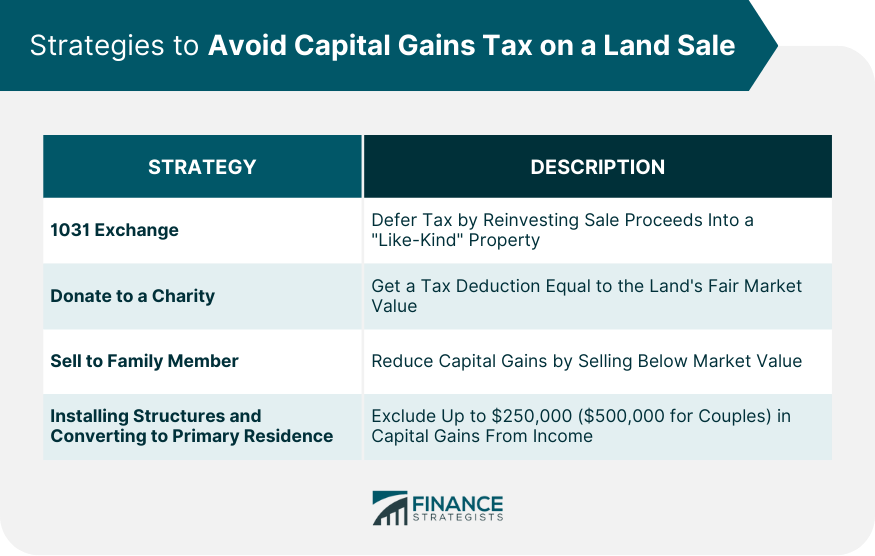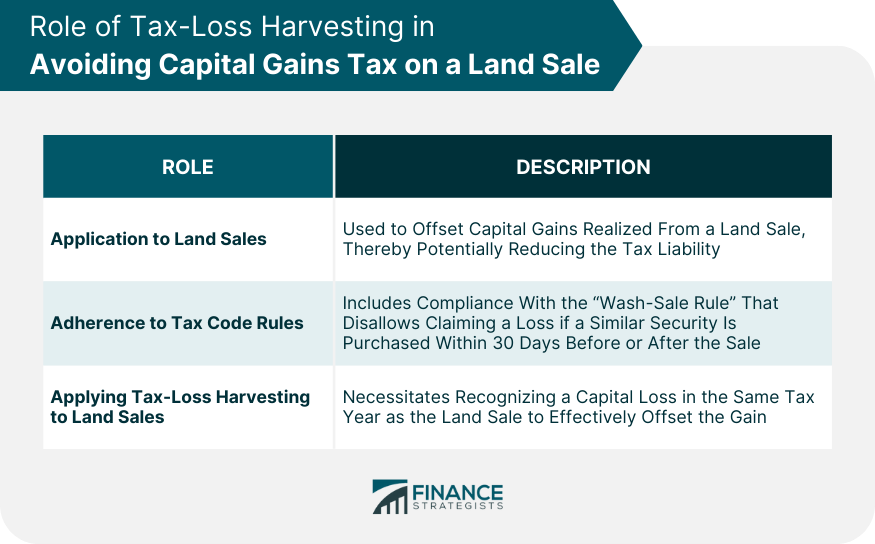Avoiding capital gains tax on a land sale requires strategic planning. Firstly, consider a 1031 exchange, which allows you to defer tax by reinvesting the proceeds from the sale into a similar, or "like-kind," property. However, specific rules and timelines apply. Alternatively, invest in Qualified Opportunity Zones (QOZs). By reinvesting capital gains into these economically distressed areas, you can defer and potentially reduce tax obligations, provided certain conditions are met. For inherited land, consider the "stepped-up basis" rule which sets the cost basis at the fair market value on the date of the decedent's death, often reducing tax liability. Lastly, consider gifting the land or selling it to the family at a reduced price, but be aware that this may trigger other tax implications. Always consult with a tax professional when planning tax strategies.
I'm Taylor Kovar, a Certified Financial Planner (CFP), specializing in helping business owners with strategic financial planning. To avoid capital gains tax on a land sale, consider these strategies: 1) Utilize a 1031 exchange to reinvest proceeds into similar property. 2) Hold the land for over a year to benefit from lower long-term capital gains rates. 3) Offset gains with capital losses from other investments. 4) If eligible, use the primary residence exclusion. I'm here to help you navigate these options effectively and ensure compliance with tax laws. Contact me at (936) 899 - 5629 or [email protected] to discuss how we can achieve your financial objectives. WHY WE RECOMMEND: IDEAL CLIENTS: Business Owners, Executives & Medical Professionals FOCUS: Strategic Planning, Alternative Investments, Stock Options & Wealth Preservation To utilize a 1031 exchange on a land sale, the seller must identify a replacement property within 45 days of the land sale and must complete the acquisition of the new property within 180 days. It's worth noting that a 1031 exchange requires careful planning and adherence to specific rules, hence the importance of consulting with a tax professional. Donating land to a registered charitable organization can serve as a strategy to avoid capital gains tax. If the land has appreciated in value, the owner can get a charitable tax deduction equal to the property's fair market value. Selling to a Family Member at a Reduced Rate Selling land to a family member at a price below market value can also be a strategy to minimize capital gains tax. The IRS allows individuals to give gifts up to a certain value each year tax-free. By selling land to a family member at a price that falls within this gift exemption, the landowner can effectively reduce the capital gain realized and hence the capital gains tax due. If a landowner builds a dwelling on the land and makes it their primary residence for at least two of the five years before selling, the land sale can qualify for the primary residence exclusion. This exclusion allows individuals to exclude up to $250,000 in capital gains ($500,000 for married couples) from their income, significantly reducing or even eliminating capital gains tax. The application of tax-loss harvesting in land sales requires strategic timing. For the strategy to work, the investor must recognize a capital loss in the same tax year as the land sale to offset the capital gain from the land. By doing this, the investor can potentially decrease the tax liability arising from the land sale. While tax-loss harvesting is a legitimate method of reducing tax liabilities, it's important to navigate within the confines of the tax code. The IRS has specific rules regarding tax-loss harvesting, including the "wash-sale rule." This rule prohibits claiming a loss on a sale if a similar or substantially identical security is purchased within 30 days before or after the sale. Hence, investors must ensure compliance with this and other tax code regulations. Applying tax-loss harvesting to land sales requires strategic timing. The landowner would need to recognize a capital loss in the same tax year as the land sale to offset the capital gain. It's essential to keep in mind that the tax code has specific rules for tax-loss harvesting, including the "wash-sale rule" that prohibits claiming a loss on a sale if a similar investment is purchased within 30 days before or after the sale. Given the complexities of the tax code and the potential financial implications of a misstep, consulting with a tax professional when planning to sell land can be invaluable. A tax professional can provide guidance tailored to your specific circumstances, help identify potential tax-saving strategies, and ensure compliance with the tax code's requirements. A tax professional can assist in various ways, from helping determine your cost basis and potential capital gain to advising on 1031 exchanges, donations to charities, and tax-loss harvesting. They can also provide updates on any recent changes in tax laws that could impact your land sale. Attempting to navigate the complexities of the tax code without expert guidance can lead to unintentional missteps. These errors can have serious legal and financial implications, including penalties and even criminal charges in severe cases. Professional consultation can help avoid such consequences by ensuring all strategies comply with the legal requirements of the tax code. While tax avoidance—using legal means to reduce one's tax obligation—is both legal and smart, tax evasion—resorting to illegal methods to avoid paying taxes—is a criminal offense. The strategies discussed here, when implemented correctly, constitute tax avoidance, not tax evasion. Missteps in attempting to avoid capital gains tax, such as failing to adhere to the requirements for a 1031 exchange or misusing the gift exemption, can have significant legal implications. These can range from financial penalties to, in severe cases, criminal charges. As such, it's crucial that any tax avoidance strategies be implemented correctly and in accordance with the law. Understanding how to avoid capital gains tax on a land sale can result in substantial savings. It involves a combination of strategies, including 1031 exchanges, investing in Qualified Opportunity Zones, leveraging the "stepped-up basis" for inherited land, and gifting or selling land to family members. Introducing structures and converting the land into a primary residence can also potentially sidestep large tax bills. Further, utilizing tax-loss harvesting can offset gains, reducing the overall tax liability. However, it's important to navigate these strategies carefully to avoid unintentional tax evasion. Consulting a tax professional can provide invaluable assistance, ensuring compliance with complex tax laws and optimizing tax-saving opportunities. Ultimately, with the right knowledge and guidance, capital gains tax on a land sale can be significantly mitigated, enhancing the overall financial benefits of your investment.How to Avoid Capital Gains Tax on a Land Sale: Overview
Learn From Taylor

Fee-Only Financial Advisor
Certified Financial Planner™
3x Investopedia Top 100 Advisor
Author of The 5 Money Personalities & Keynote Speaker
Strategies to Avoid Capital Gains Tax on a Land Sale
Utilization of a 1031 Exchange
Donating Land to a Charitable Organization
Installing Structures and Converting to Primary Residence

Role of Tax-Loss Harvesting in Avoiding Capital Gains Tax on a Land Sale
Application to Land Sales
Adherence to the Tax Code Rules
Applying Tax-Loss Harvesting to Land Sales

Importance of Professional Consultation in Avoiding Capital Gains Tax on a Land Sale
Why Consult a Tax Professional
How a Tax Professional Can Help
Preventing Unintended Legal Consequences
Legal Implications of Avoiding Capital Gains Tax on a Land Sale
Understanding Tax Evasion vs Tax Avoidance
Potential Legal Consequences of Improper Tax Avoidance
Conclusion
How to Avoid Capital Gains Tax on a Land Sale FAQs
Capital gains tax on a land sale refers to the tax levied on the profit realized when you sell a piece of land for more than what you originally paid for it. The difference between the sale price and your initial purchase price is the capital gain and is typically subject to taxation.
A 1031 exchange allows you to defer capital gains tax on a land sale by reinvesting the proceeds of the sale into a new property of "like kind." It's important to note that there are specific rules and timelines to adhere to in order for a sale to qualify for a 1031 exchange.
Yes, donating land to a registered charitable organization can help you avoid capital gains tax on a land sale. You receive a charitable tax deduction equal to the fair market value of the donated land, and you also avoid the capital gains tax that would apply if you sold the land.
Selling land to a family member at a price below market value can help minimize capital gains tax. This is because the IRS allows individuals to give gifts up to a certain value each year tax-free. By selling the land as a gift that falls within this exemption, the amount of capital gain and thus the capital gains tax can be reduced.
Tax-loss harvesting can help avoid capital gains tax on a land sale by offsetting the capital gains. It involves selling investments that have depreciated in value to offset the gains realized from the sale of the land. Note that strategic timing is essential, as the capital loss should be recognized in the same tax year as the land sale.
True Tamplin is a published author, public speaker, CEO of UpDigital, and founder of Finance Strategists.
True is a Certified Educator in Personal Finance (CEPF®), author of The Handy Financial Ratios Guide, a member of the Society for Advancing Business Editing and Writing, contributes to his financial education site, Finance Strategists, and has spoken to various financial communities such as the CFA Institute, as well as university students like his Alma mater, Biola University, where he received a bachelor of science in business and data analytics.
To learn more about True, visit his personal website or view his author profiles on Amazon, Nasdaq and Forbes.















